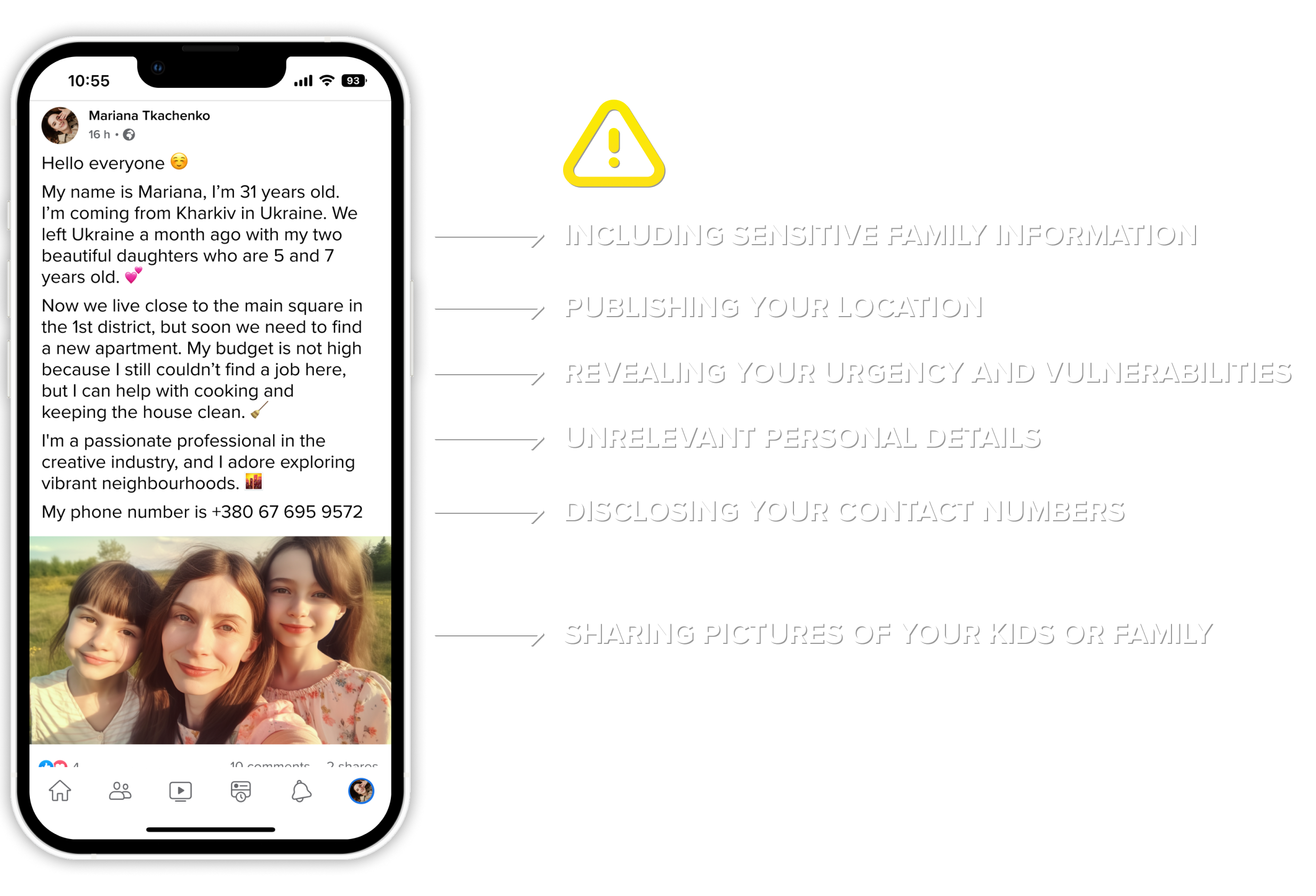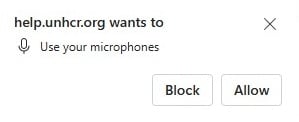When seeking help from online communities and organisations, it's crucial to protect your personal safety and privacy. Having learned how to identify safe online communities, it's now important to understand how to ask for assistance while minimising risk.
Share your request for assistance safely online
Be mindful about the personal details you share online. Over-sharing, especially regarding your family, travel plans, or documents, could make you vulnerable to those with malicious intent. Criminals are always searching for such personal information, so they can steal your identity (pretend to be you) or use it against you in other ways. Approach online sharing with the same caution you would when interacting with a stranger in person.
Whether it's for accommodation, employment, travel, or just general information, when you post a request for assistance, your safety and privacy should always be your top priority.
Your post will be safe if…
- You’ve spent time understanding the group's dynamics by reading other posts and responses.
- You've shared just enough to get help but left out details that could compromise your privacy.
- Instead of exact locations, you've referred to general areas, like “accommodation in the capital”.
- You remember that not all responses might be in your best interest and to trust your judgment.
Your post will be unsafe if…
- You've included sensitive details like your exact location, ID documents, or detailed family information.
- You’ve revealed your vulnerabilities or legal status unnecessarily.
- You’ve shared your emotions or present urgent requests that push for immediate action.
- You've detailed your future travel plans, locations you intend to visit, or specific dates and times of your movements.
- You’ve published pictures of yourself or your family.
Remember, while online communities can be a great resource, they're no substitute for official advice and support services. Use these platforms as part of a broader strategy for seeking assistance, combining the communal knowledge with official resources and professional advice.

Get in touch with organisations safely online
NGOs and humanitarian organisations, such as UNHCR, IOM, or UNICEF, play a crucial role in providing support and services. They are active on social media, offer informative websites, and assist through various communication channels. However, in times of crisis, there is often a sudden increase in the number of active helping organisations, and you might come into contact with some that are unfamiliar to you.
Criminals are aware of this and may exploit your need for assistance. They often mimic legitimate organisations on social media or create entirely new ones with attractive offers to deceive you. However, their promises are false, and falling victim to fraudulent organisations can lead to misuse of your data and jeopardise your and your family's well-being.
Your can safely contact them if…
- The organisation has a proven track record and recognised affiliations.
- Their website is professional, current, and provides transparent information about their mission and data policies.
- They are responsive, transparent and helpful when contacted directly.
- Their legitimacy is endorsed by community leaders or through reliable referrals.
Your shouldn’t contact them if…
- You're unable to verify the organisation's credibility and history.
- You feel pressured or unsure about the organisation's intentions.
- The organisation demands excessive personal information that isn't necessary for your specific need.
- You haven’t researched and confirmed the trustworthiness of the organisation.
Even with legitimate organisations, only provide the necessary data to your specific need. They rarely request copies of your documents or sensitive data online, often preferring in-person meetings at their offices or community centres instead. Always keep records of the information you share and with whom for future reference.
When discovering an organisation on social media, always check their history of older posts. A recently created profile can be a sign of harmful intentions, whereas well-established organisations typically set up their profiles 5-10 years ago. Learn how to recognise fake social media profiles.
Understand the risks of over-sharing information online
When you share information online, you may not always consider how it could be used beyond its intended purpose. However, your digital footprint you leave can be pieced together by those with harmful intentions, leading to a range of threats that can have significant impacts on your life and security.
Identity theft
When too much personal information is shared online, cybercriminals can use your details to impersonate you, leading to unauthorised transactions and other fraudulent activities in your name.
Impersonation to friends and family
Cybercriminals can also use your information to impersonate you and contact your loved ones under false pretences. They might exploit these relationships to solicit money or sensitive details.
Using deepfakes against you
If your personal data and images are available online, deepfake technologies can create convincing fake videos or audio recordings of you. These manipulations can damage your reputation, blackmail you, or even put you in danger, especially if deepfakes are used to create compromising content.
Doxxing
Your personal details could be released to the public. For refugees, this exposure can be particularly harmful, potentially revealing your location or sensitive background to hostile parties or the general public.
Targeted phishing attacks
Leaked personal contact details can lead to phishing attacks, where cybercriminals aim to steal sensitive information, access important accounts, or gain control of personal data, leading to significant losses.
For the displaced population, these risks are amplified even further by the unique challenges of your situation. By being aware and cautious of what you share online, you can significantly reduce the risks and protect your digital identity. Remember, in the online world, your information is as valuable as any physical asset, and its protection is key to ensuring your safety.



